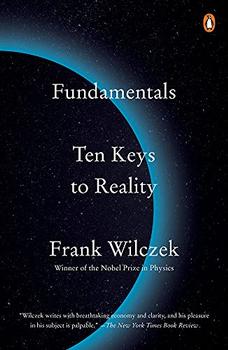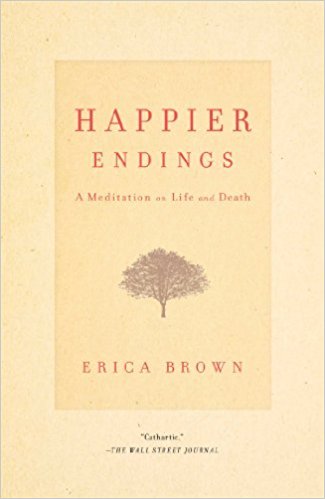Summary | Excerpt | Reading Guide | Reviews | Beyond the book | Read-Alikes | Genres & Themes | Author Bio

The Voice in Our Head, Why It Matters, and How to Harness It
by Ethan KrossChatter: The Voice in Our Head, Why It Matters, and How to Harness It is like a balm for an anxious soul. Author Ethan Kross is an experimental psychologist, a neuroscientist and a professor of psychology at the University of Michigan, as well as the director of the university's Emotion & Self Control Laboratory. In this book, Kross presents an insightful, science-based and remarkably readable look at introspection — the ongoing, silent conversations people carry on with themselves throughout the day — and how to control it.
Using a combination of research, scientific grounding and personal experience, Kross writes about an academic subject in layman's terms while providing down-to-earth, honest advice. His presentation is easy to grasp but never condescending, and his thoughtful inclusion of anecdotes of his own and from others guards against making readers feel intellectually or emotionally intimidated.
Kross defines "chatter" as "the cyclical negative thoughts and emotions that turn our singular capacity for introspection into a curse rather than a blessing." He explains that these negative thoughts can impact performance, decision making and behaviors — but all is not lost! The author assures us that there are ways to control this inner voice, and even ways we can use it to benefit us, stating, "the key to beating chatter isn't to stop talking to yourself. The challenge is to figure out how to do so more effectively."
Before explaining how to effectively harness our inner voices, Kross begins with a personal account of his own late-night battle with mental chatter that was a result of receiving a threatening message. His anxiety drove him to think and act in irrational ways, even going so far as to imagine having to order police protection. But after a restless and difficult night, Kross was able to gain clarity, get a grip on his thoughts and find the inspiration for writing Chatter.
Over the next several chapters, he combines information about the sources and scientific history of mental chatter, the negative effects of rumination and people he has worked with who also buckled under the weight of their own minds. Using stories of individuals like Rick Ankiel (see Beyond the Book), the St. Louis Cardinals pitcher whose career was turned upside down by overwhelming anxiety and negative thought patterns, Kross takes readers on a journey through a variety of potential internal dialogues. He explains that thought patterns can have helpful or negative impacts on performance and emotion based on whether the patterns are "linked" or "unlinked." "Linked" thought patterns are connected to external goals, plans or a series of positive behaviors that represent a bigger picture. "Unlinked" thought patterns focus our attention on only one aspect of an issue, one specific behavior or a single moment in time. "Linked" thoughts enable us to view our overall successes, and to imagine new ways forward, while "unlinked" thoughts lead to negative thought spirals, obsessive behaviors, anxiety and rumination.
After providing readers with descriptions and illustrations of various thought patterns and internal dialogues, Kross focuses on the benefits and drawbacks of traditional behavioral therapies. He also reveals how our inclinations for dealing with negative self-talk (such as verbalizing those thoughts and feelings to others) may not be as useful or productive as we would like. Kross profiles well-known figures like Malala Yousafzai and Fred Rogers, and reveals the helpful behaviors they engaged in when dealing with negative self-talk.
The author also explains how to use mind-calming tricks to lessen mental chatter, such as engaging in rituals, imagining oneself as a friend in need of advice, reframing experiences and gaining a "fly on the wall" perspective when faced with troubles or doubts. As a reader, the book allows you to feel good knowing you are not alone in experiencing negative chatter, and you may be relieved to discover what can be done to harness your inner voice to work for you, not against you.
This is a read that goes far beyond a typical self-help book in scope and yet remains accessible, even friendly, toward its audience. The definitions, descriptions and anecdotes are relatable; the advice and helpful tips are practical and easy to apply. I will be keeping Chatter nearby in case I need a refresher.
![]() This review was originally published in The BookBrowse Review in February 2021, and has been updated for the
February 2022 edition.
Click here to go to this issue.
This review was originally published in The BookBrowse Review in February 2021, and has been updated for the
February 2022 edition.
Click here to go to this issue.

If you liked Chatter, try these:

by Frank Wilczek
Published 2022
One of our great contemporary scientists reveals the ten profound insights that illuminate what everyone should know about the physical world.

by Erica Brown
Published 2014
A wise and affirming meditation on living fully and preparing for death, written by a highly regarded spiritual teacher.
Your guide toexceptional books
BookBrowse seeks out and recommends the best in contemporary fiction and nonfiction—books that not only engage and entertain but also deepen our understanding of ourselves and the world around us.